The pandemic changed the way we work, and as the work-from-home lifestyle became the norm, employees began to re-evaluate their expectations for work-life balance. Many workers quit their jobs because their needs weren't being met.
It's clear that employees don't want to go back to the way things were pre-pandemic. So we asked the question: What's the future of remote work? What perks do employees really want? And what will help keep employee retention high?
Going into the office is a deal-breaker
American knowledge workers want to work remotely—and they're willing to quit their job to do so. 32 percent of survey respondents say they've already quit a job because they didn't have the option to work remotely, and 61 percent say they would leave their job if they had the option to accept a fully remote opportunity.
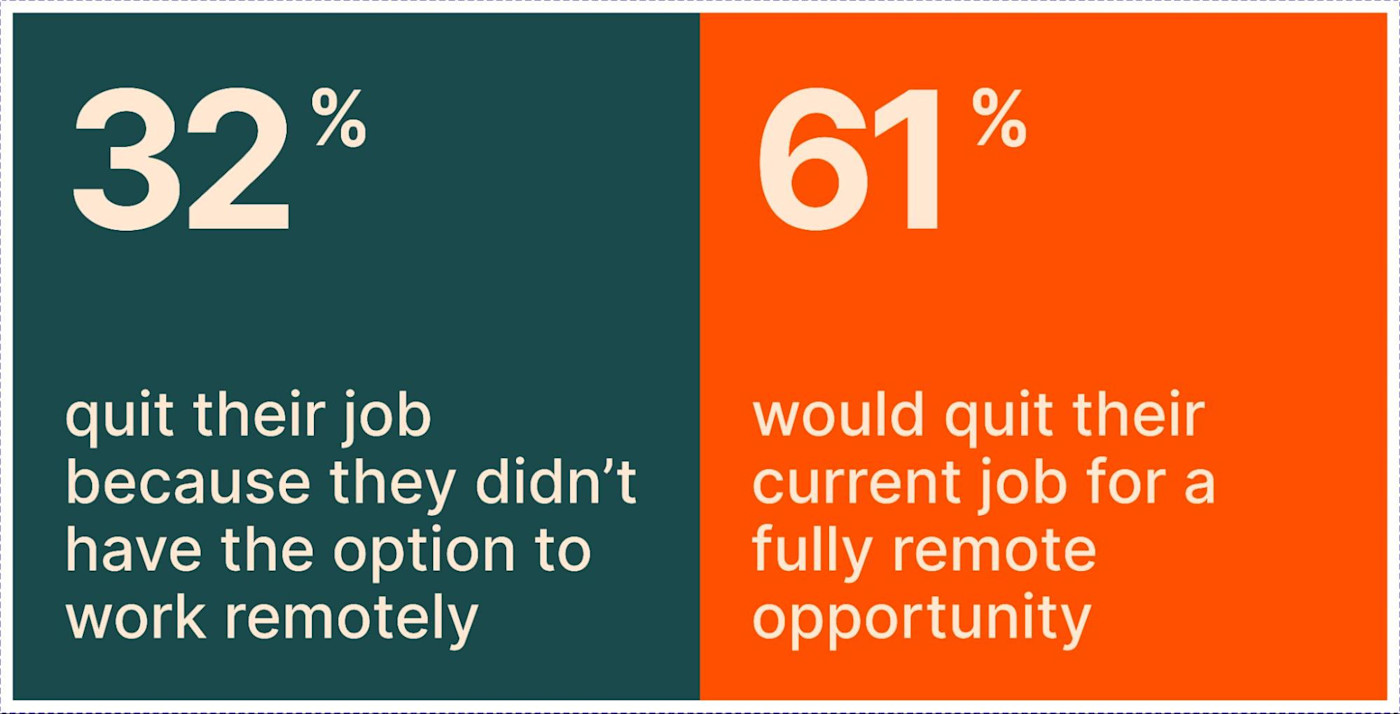
Remote work is beneficial for businesses too: 64 percent of survey respondents agree that remote work has made them more productive. This is consistent with how workers felt at the beginning of the pandemic when many people transitioned to working from home overnight.
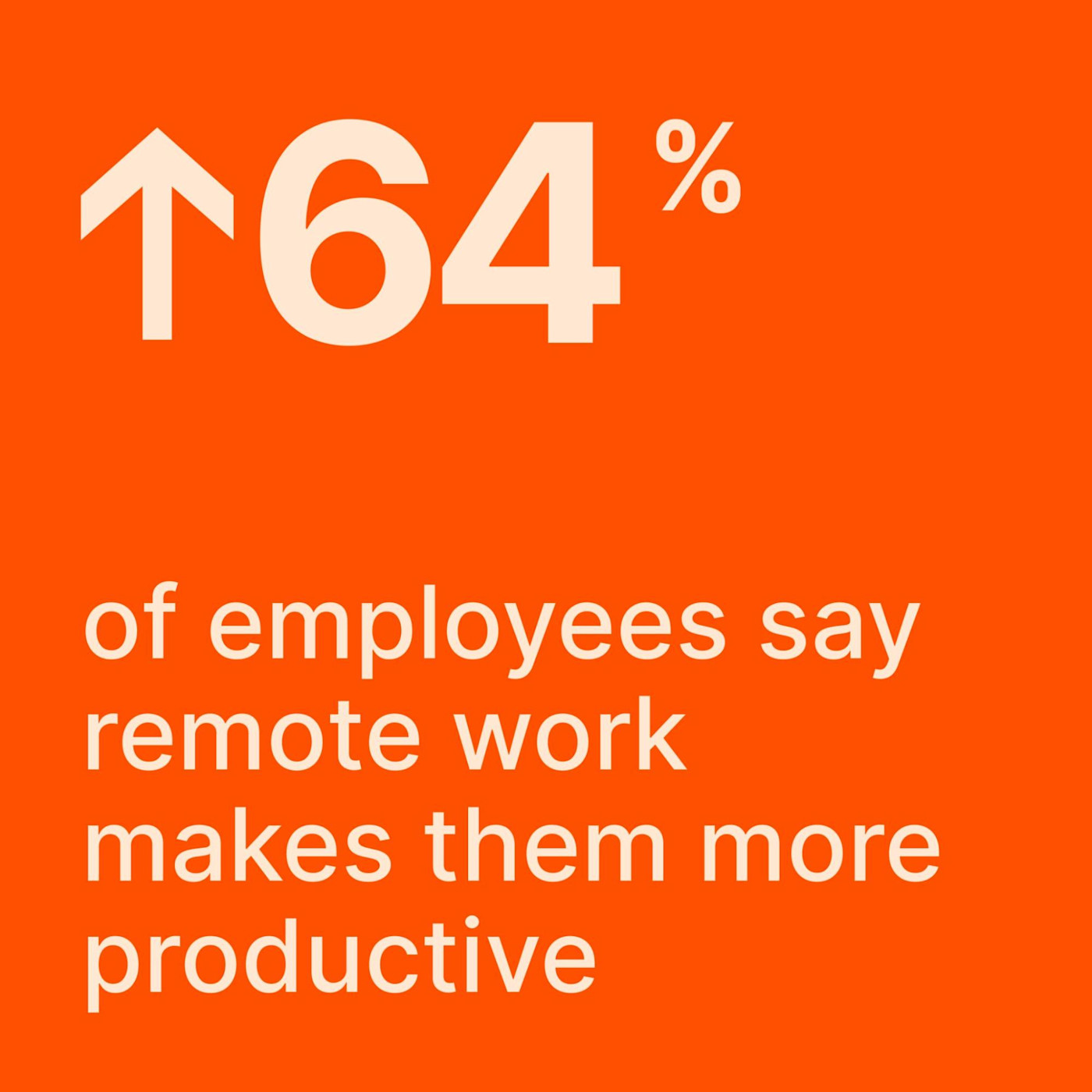
Employees want work-life balance
Why are folks so eager to go remote? Because it makes them happy. A whopping 91 percent of respondents agree that the ability to work remotely and have flexible hours contributes to their happiness at work.
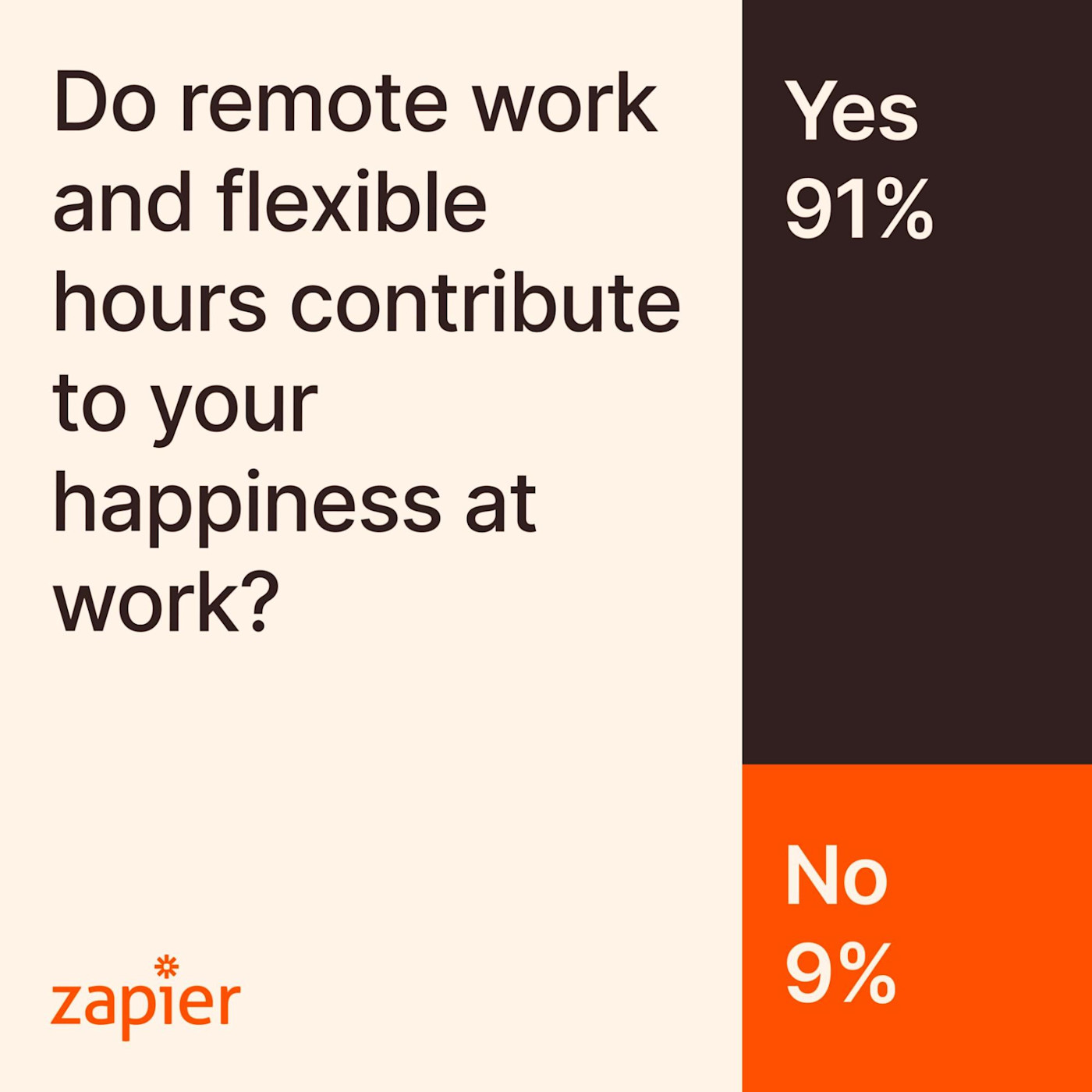
And it's not just increased happiness at work; remote work also affects employees' lives outside of work. Here's what respondents said:
Remote work has improved their savings (61 percent)
Remote work has given them the flexibility to attend to family life (66 percent)
Remote work has improved their morale (62 percent)
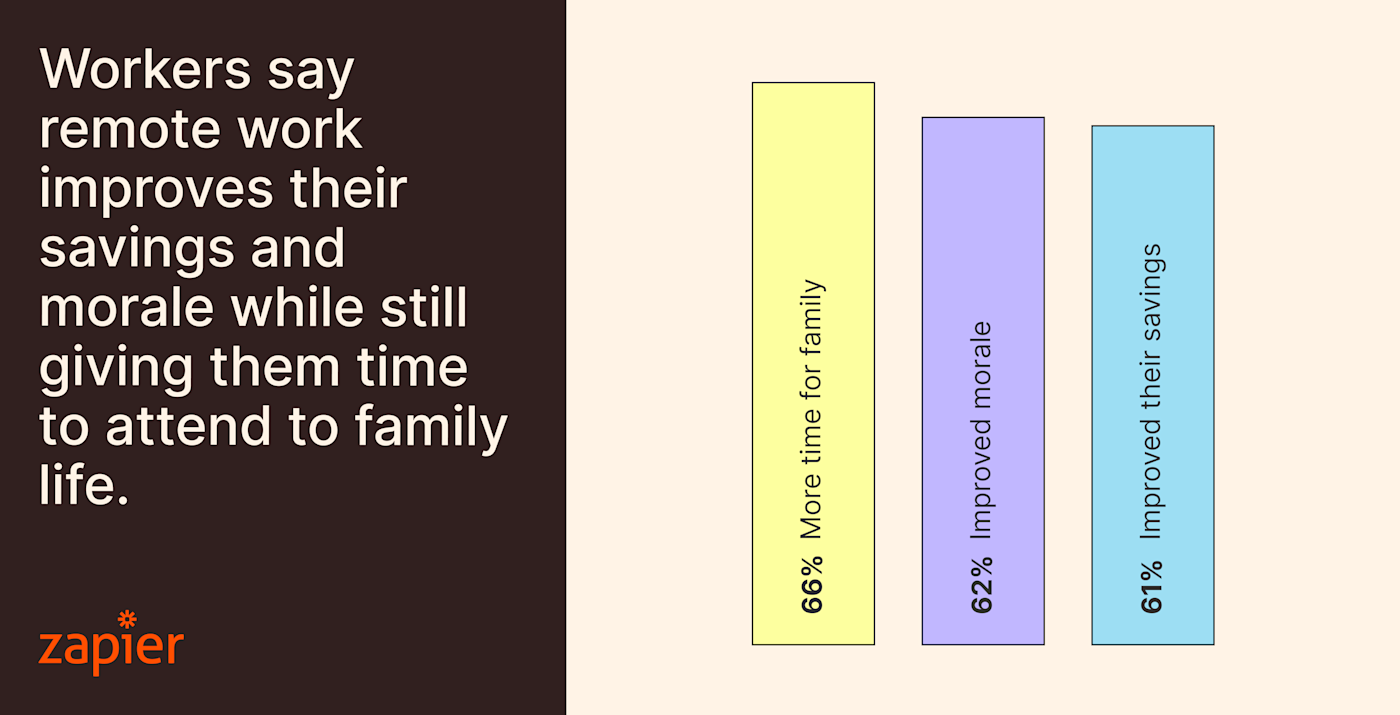
Almost all the survey respondents (96 percent) associate work-life balance with their happiness at work—just surpassing the next highest perk (flexible hours at 91 percent).
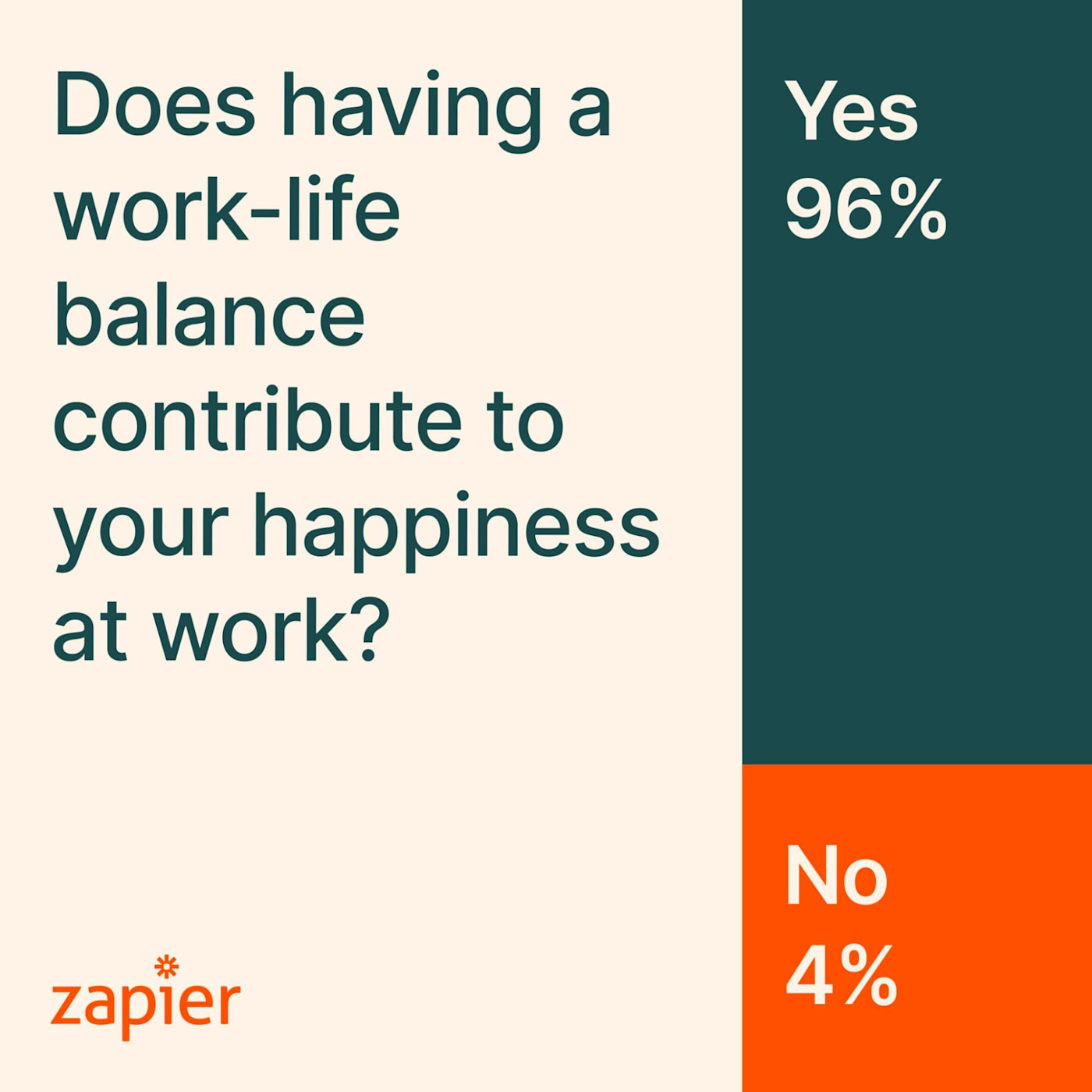
The future of work: The next generation will be remote
The next generation wants to work remotely. Here's the breakdown by age of survey respondents who said they would quit their current role for a fully remote opportunity:
100 percent of respondents ages 18-24
64 percent of respondents ages 25 -34
65 percent of respondents ages 35-44
87.5 percent of respondents ages 45-54
50 percent of respondents ages 54+
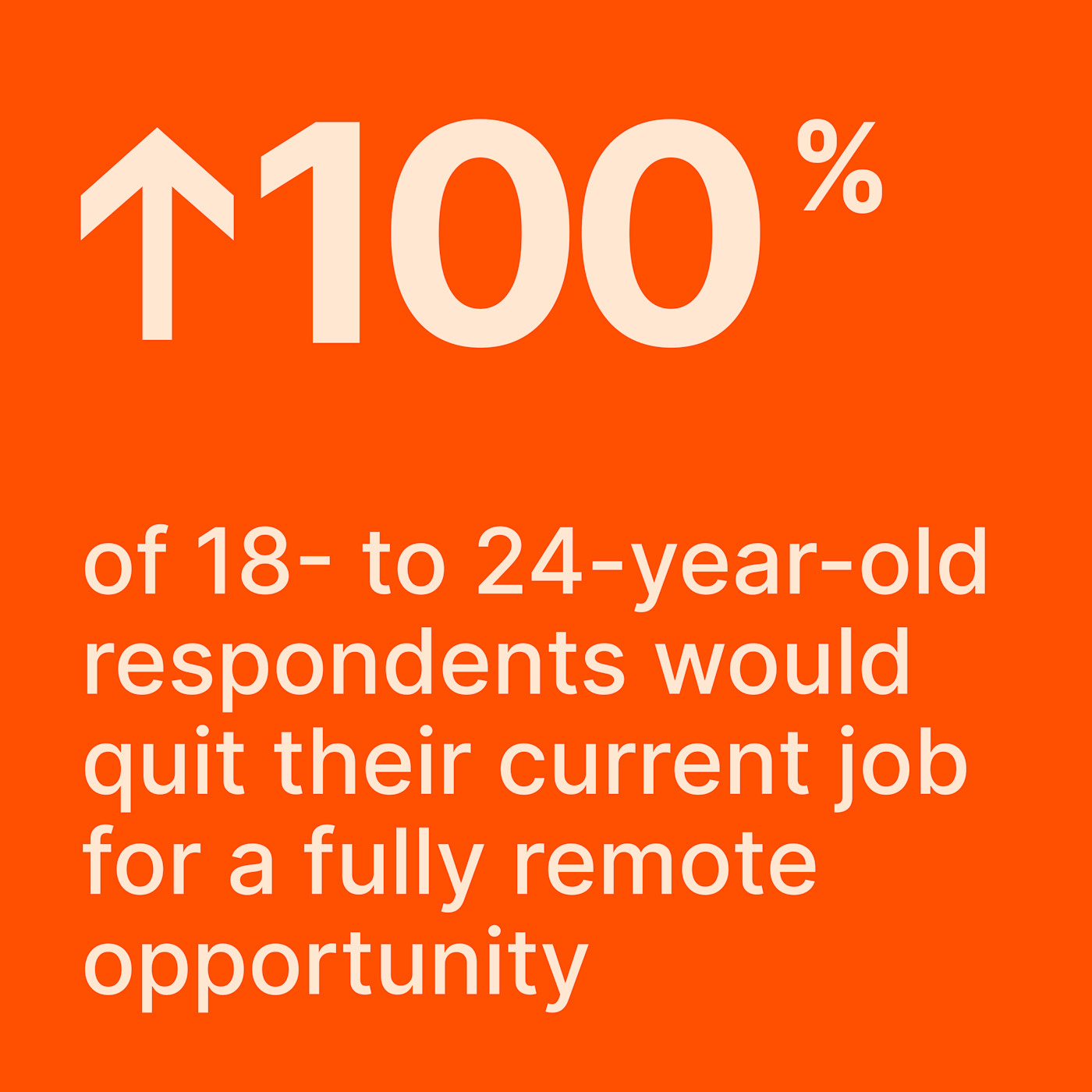
As the younger generation advances in the workforce, these future of work stats make it clear that remote work will become even more prominent.
Methodology: To get these remote work statistics, Zapier surveyed over 600 knowledge workers throughout the United States who work for small and medium businesses (fewer than 250 total employees). This survey was completed online using OnePoll in March 2022 and responses were random, voluntary, and completely anonymous.




